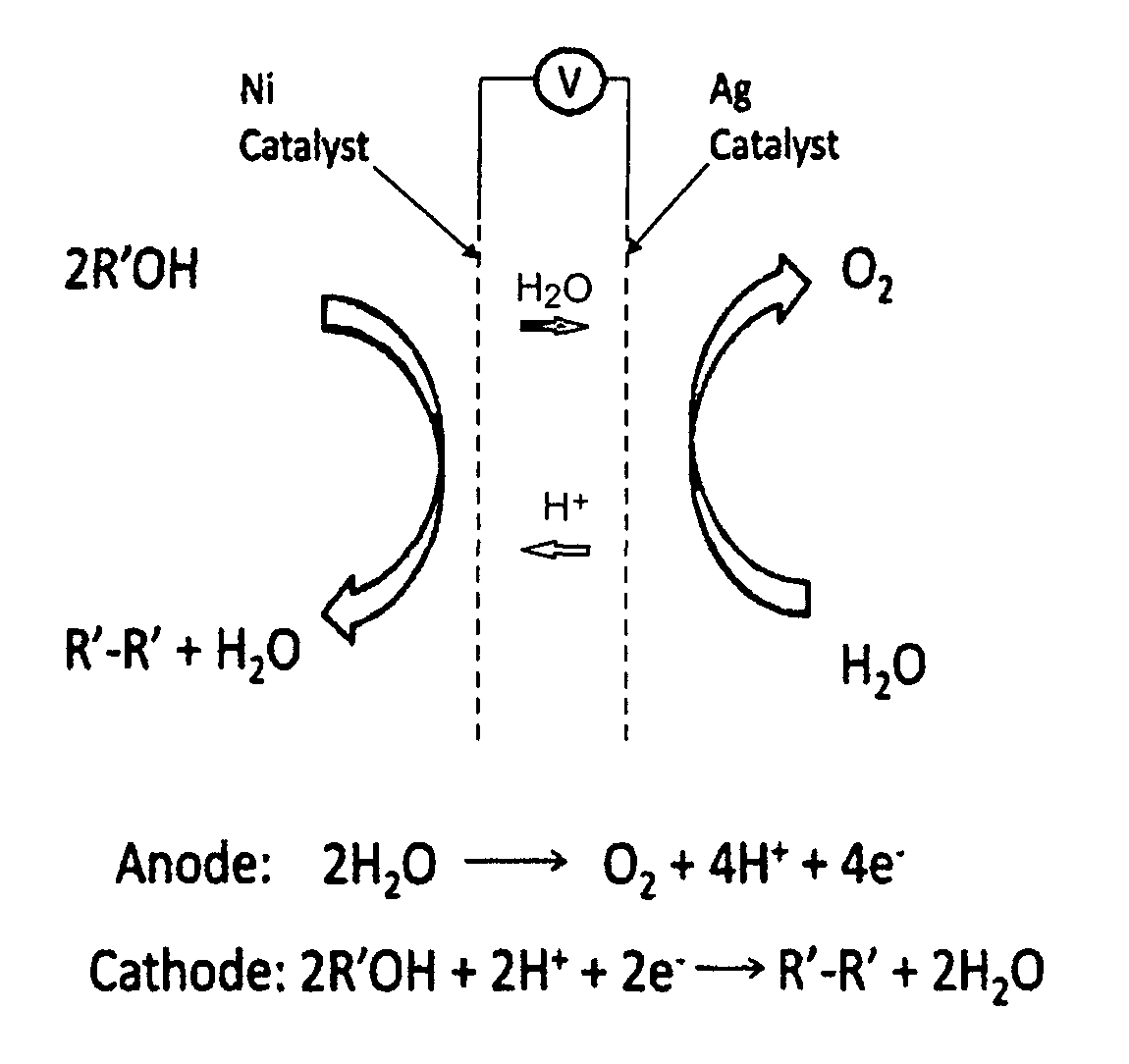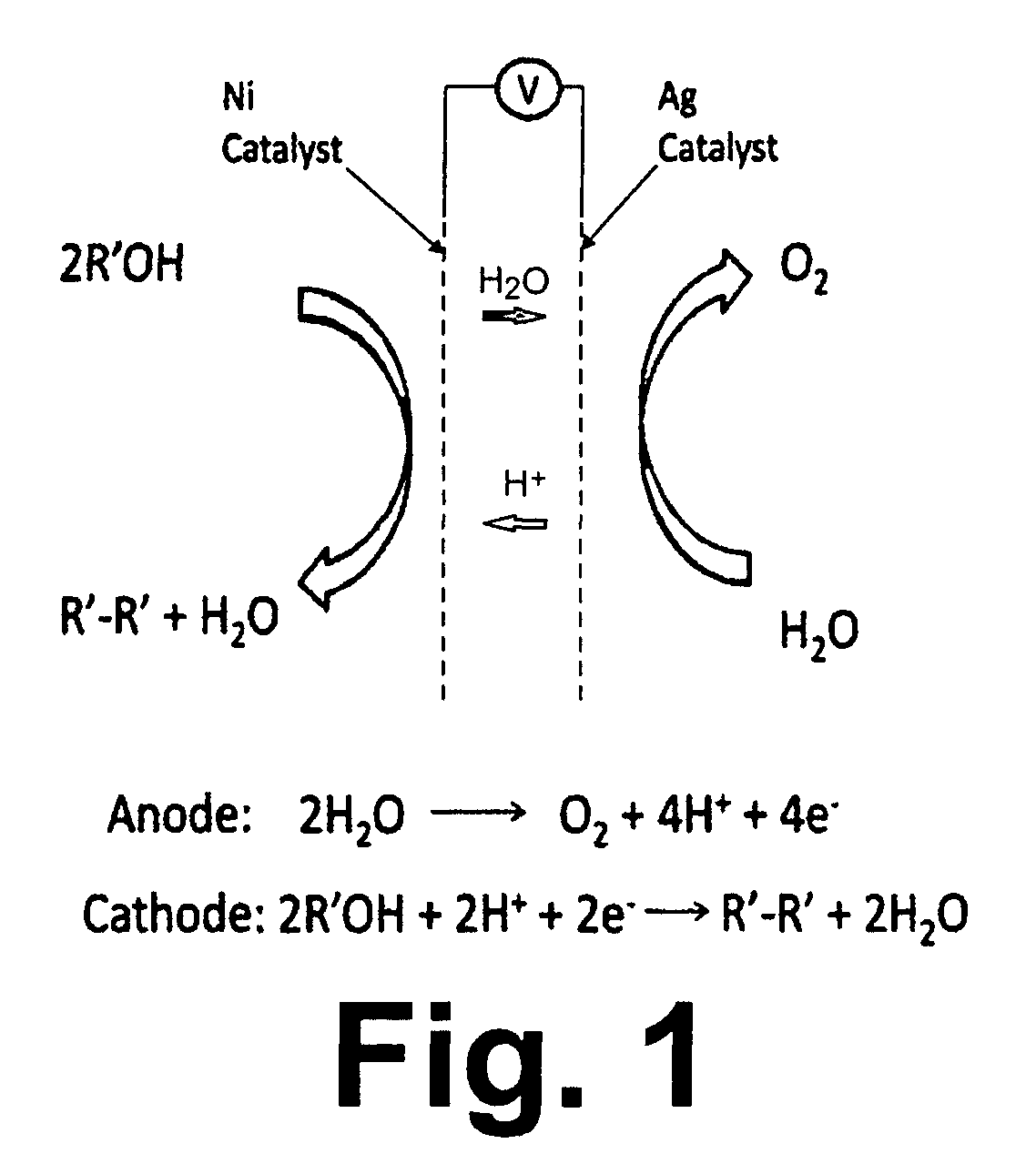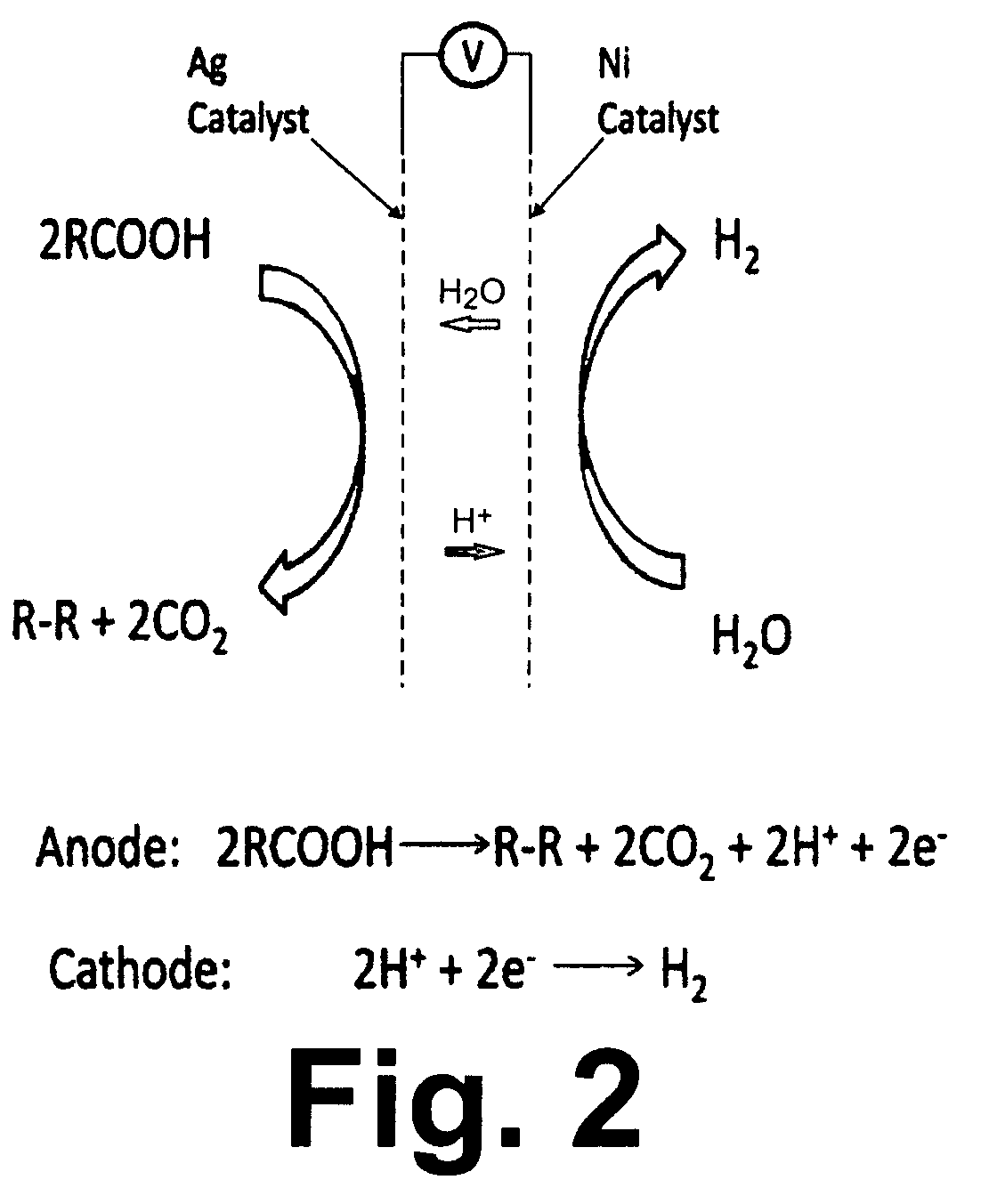Biofuel production by high temperature non-faradaic electrochemical modification of catalysis
a biofuel and electrochemical modification technology, applied in the direction of electrolytic organic production, energy input, organic chemistry, etc., can solve the problems of inability to use bio-oil treatment, complex process, complex separation path, etc., and achieve long c—c chain fuels and high heat value.
- Summary
- Abstract
- Description
- Claims
- Application Information
AI Technical Summary
Benefits of technology
Problems solved by technology
Method used
Image
Examples
Embodiment Construction
Definitions
[0022]As used in the description and claims, the term “increased carbon chain fuel” refers to a fuel in which the carbon chain is incrementally longer than the carbon chains of the individual reactants.
[0023]As used in the description and claims, the term “refined biomass material” refers to carbohydrates, organic acids, and alcohols derived from biomass.
[0024]As used in the description and claims, the term “non-Faradaic electrochemical device” refers to an electrochemical cell comprising a proton conductive membrane disposed between a catalytic anode electrode and a catalytic cathode electrode in which electricity from an external source is provided between the catalytic anode electrode and the catalytic cathode electrode, resulting in increased catalytic activity or selectivity.
[0025]In this invention, non-Faradaic electrochemical modification of catalytic activity is used to convert refined biomass materials to useful fuels. In accordance with one embodiment of this in...
PUM
| Property | Measurement | Unit |
|---|---|---|
| temperature | aaaaa | aaaaa |
| electrical potential | aaaaa | aaaaa |
| temperature | aaaaa | aaaaa |
Abstract
Description
Claims
Application Information
 Login to View More
Login to View More - R&D
- Intellectual Property
- Life Sciences
- Materials
- Tech Scout
- Unparalleled Data Quality
- Higher Quality Content
- 60% Fewer Hallucinations
Browse by: Latest US Patents, China's latest patents, Technical Efficacy Thesaurus, Application Domain, Technology Topic, Popular Technical Reports.
© 2025 PatSnap. All rights reserved.Legal|Privacy policy|Modern Slavery Act Transparency Statement|Sitemap|About US| Contact US: help@patsnap.com



